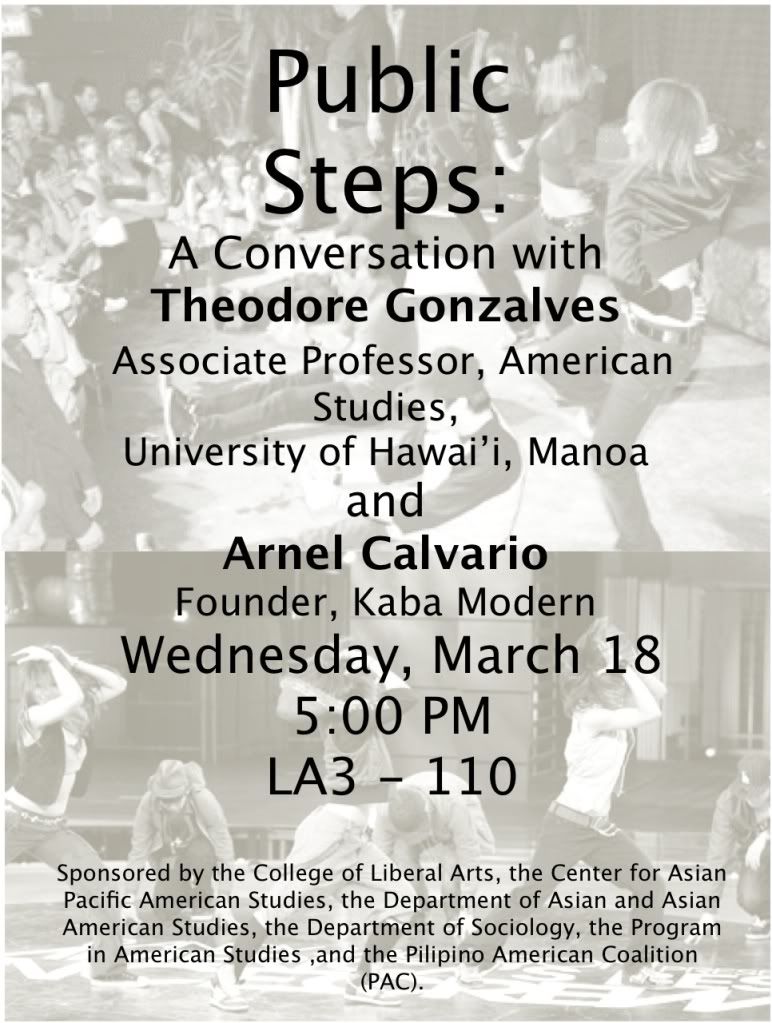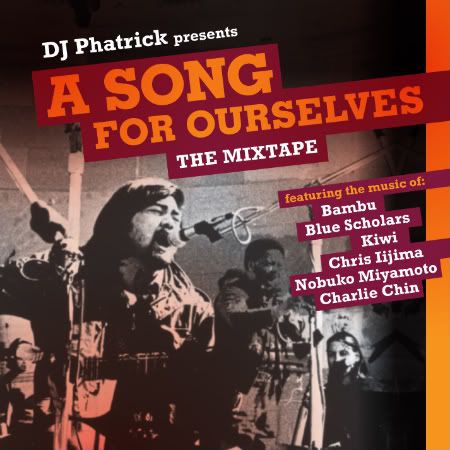SLANTING LEFT

Given the news today of a new Gallup poll that suggests Asian Americans are largely left-leaning (as well as secular), Junichi and I decided to "chat" about the findings together.
OW: Were you as surprised as I was by these findings? Let me first say - I think we'd really need to see some disaggregation here by ethnic group, age, geography and immigrant status. But even without that, I would not have thought that Asian Americans would have a higher proportion of self-described liberals than conservatives. Where have they all been hiding?
JS: Well, I am not surprised by the party affiliation data, which I think is the most meaningful survey result. The numbers there largely correlate to my general impression -- today, Asian Americans and Chicano/Latinos lean Democratic, but not remotely as strongly as African Americans.
I think the "Ideological Identification" question, however, sheds more light on how various groups think of the words "liberal," "moderate," and "conservative" -- as opposed to where they actually stand on an ideological spectrum.
Otherwise, how is it possible that the group that votes most consistently for Democrats (African Americans) is not also the group that most consistently identifies as liberal? I realize that Democrats today are hardly a "liberal" party, but they've been more liberal than the Republicans for several decades now.
Here is my theory. (To be clear, I have no data to back this up.) For many in the black community, the word "liberal" has strong associations with white leftists who are pro-choice, pro-union, anti-death penalty, pro-gay rights, anti-war, and pro-drug legalization, to name a few ideological issues. Though they vote for Democrats more than any other group, African American voters aren't very likely to line up with Michael Moore's positions on all social issues and are therefore more likely to identify as "moderate." Plus, the appeal of being conservative, in certain respects, has strong roots in black Christian communities in the South; thus, those self-identified "conservatives" still voted for Obama over McCain.
On the other hand, I suspect Asian Americans, in totality, are more likely to consider the word "conservative" to be one associated with Sarah Palin, Rush Limbaugh, and the religious right. With so few Asian Americans an active part of any fundamentalist, Christian-rooted political movement, the percentage of "conservatives" is low.
In other words, I seriously doubt Asian Americans are more "liberal" than every other group if we look at specific issues. If you polled each group and asked the following specific questions ...
* Do you support a more progressive tax scheme in which Americans who make more than $100,000 will be taxed at a higher rate?
* Do you support lowering jail sentences for drug-related crimes?
* Do you support affirmative action?
* Do you support gay marriage?
* Do you believe the government should more actively regulate industry to lower pollution and other negative environmental externalities?
* Do you support a single-payer health care system?
... I would be shocked if Asian Americans were the group most likely to say yes.
As for disaggregation, I do think you'd see some interesting trends if you were to divide between Asian American ethnic groups, as well as immigrants vs. children of immigrants vs. those whose parents were born here in the United States.
One more thought: this poll reminds me of how the Republican Party needs to fundamentally reinvent itself if it wants to regain the White House and Congress again. During the last decade, the GOP did so much to alienate non-whites and non-Christians from its tent that it needs to figure out how to regain the trust of at least one of the three other major racial groups to stay afloat. It will only get worse as we inch closer to being a country with no majority race.
OW: I think you raise a good point about how the terms themselves should be questioned. This is a point Matt Yglesias raises too - that "liberal" isn't a terribly useful political term anymore.
I'm curious why you think Asian Americans associate "conservative" the far-right icons or movements you mention? Why an aversion there and not with other communities?
Here's a question I posed on Facebook...first, let's assume that this polling pool here is actually quite small since, as my friend Oiyan Poon astutely noted, Gallup spoke with "likely voters" which would tend to constrict the pool of Asian Americans based on citizenship rates. If, as you suggest, the wider AA community is less left-leaning as Gallup indicates...BUT that comprises people in the community who don't vote...do they really matter in terms of the political calculus? In other words, what's the more important statistic? How Asian American "likely voters" vote? Or how the whole of Asian America would theoretically vote...assuming they voted?
JS: I think the word "conservative" has been hijacked today to be synonymous "religious conservative." Much to the lament of secular fiscal conservatives, in 2010, the idea of demonstrating one's conservative credentials largely focuses on positions that sync up with Christian theology.
The majority of African Americans and Chicano/Latinos in the United States are Christian. Hence, those groups don't necessarily run away from the conservative label since some vote consistent with their faith-based principles. But as the Gallup poll shows, Asian Americans are the least likely of all four racial groups to attend any church. Thus, Asian Americans are inherently less likely to identify with a belief system that is rooted in the idea that we live in a "Christian nation."
As for your question about the more important statistic, I think that measuring the opinions of all Asian Americans is the most important. The last half-century of elections has produced just enough wide swings in voter turnout to suggest that we're only one hot issue away from having "unlikely" voters turn out at the polls.
Another thought: I wonder about the potential detrimental effects of this survey if both the Democrats and Republicans think of Asian Americans as a "liberal-leaning" group. Generally speaking, that's not a good thing.
Take gays and lesbians, an obvious "liberal-leaning" group. The Republicans know that there are far too few "Log Cabin Republicans" to cater to that group, in any way. Meanwhile, the Democrats feel little need to prioritize the gay and lesbian community's concerns because, well, who else are they going to vote for? President Obama can afford to delay advancing gay rights because he knows that they're not going to vote for Sarah Palin in 2012.
In contrast, Chicano/Latinos are often seen as a swing demographic. Thus, we see pols like Arnold Schwarzenegger and George W. Bush, when running for office, taking stances that are more immigrant-friendly than the GOP's platform 16 years ago. We see both Bush and Obama appointing Chicano/Latinos to high-profile positions (e.g., Alberto Gonzales, Sonia Sotomayor) in the hopes of locking in the Latino vote.
Both national parties have been ignoring Asian Americans forever. However, there's a strange irony that the more the Asian American community is seen as politically unaffiliated, the more likely their needs will be catered to during future election years.
Labels: asian american, politics








 When Harold and Kumar Go To White Castle debuted in 2004, it was a milestone of sorts - a mainstream, gross-out, stoner comedy with two Asian American men cast as leads. Sure, the humor was juvenile and unapologetically male, there was everything from naked breasts to literal bathroom humor, and a dream sequence featuring an anthropomorphalized bag of weed. Do The Right Thing this was not.
When Harold and Kumar Go To White Castle debuted in 2004, it was a milestone of sorts - a mainstream, gross-out, stoner comedy with two Asian American men cast as leads. Sure, the humor was juvenile and unapologetically male, there was everything from naked breasts to literal bathroom humor, and a dream sequence featuring an anthropomorphalized bag of weed. Do The Right Thing this was not. 








